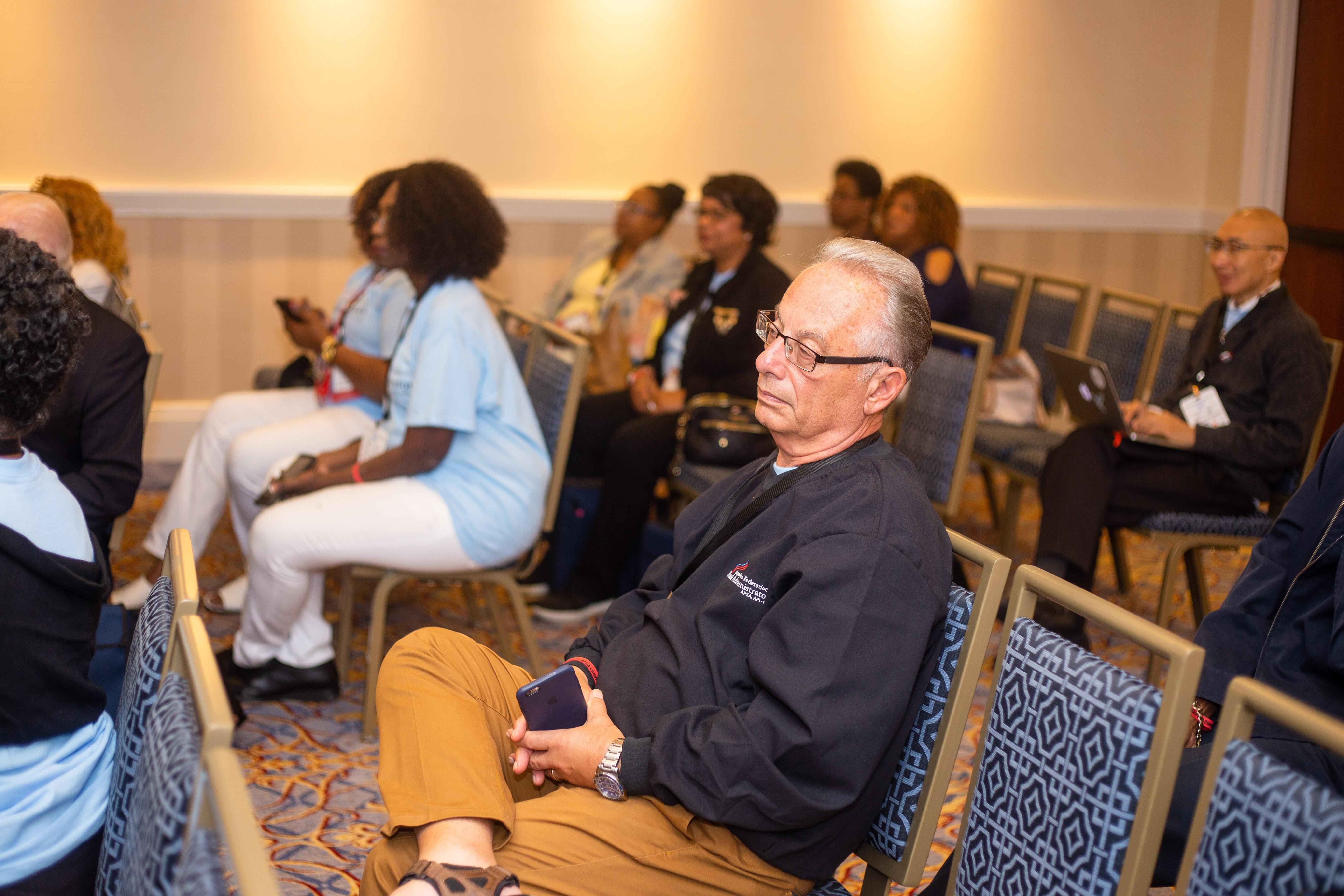In a Saturday workshop at AFSA’s Triennial Convention, Herman Merritt and Gabriel Galucci offered participants guidance in how to establish a local Political Action Committee (PAC) on how to strengthen an existing PAC
Herman Merritt, who has served as an Assistant Principal, Principal and finally Coordinator of the Supervisory Support Program, and was appointed Director of Governmental and Political Affairs in 2010 for CSA Local 1, where he’s overseen a tremendous growth of the local’s PAC.
Gabriel Galucci, who was the Political and Legislative Director at New York Communities for Change before joining CSA Local 1, has coordinated higher education and study-abroad programs for students throughout South America and Europe.
Mr. Galucci first divided the room into two different groups, with one group serving as union PAC members and the second group as politicians. The members were called upon to advocate $1million for their school and school district to support a set of familiar policies and/or programs.
Each member had three minutes to advocate their case to their political opposite. When their three-minute conversations were completed, Galucci invited feedback about the experience and any challenges that may have been experienced in communicating the union’s case.
Participants generally responded that the exercise had value, one in particular who suggested there was value in communicating to the elected official that the money would be dedicated to meaningful purposes. Another experienced PAC activist suggested that with experience, lobbying politicians becomes more approachable. A third participant suggested there is a need to explain to an elected office what the school experience is, and how providing the funds would serve the politician’s interests.
“After working as an advocate for 50 years,” one person said, playing the role of a politician gave him an entirely new perspective on how to approach elected officials.
Yet another participant who engaged in the exercise suggested that the experience of lobbying is a bit like speed dating because of the brevity that members are likely to have while lobbying an elected official.
In the course of the presention, Galucci read the CSA PAC mission statement, which addresses both new and existing members, after which Mr. Merritt offered background on the development of the PAC, which started with $6,000 in 1999, and by 2007 had built its contributions to $41,000. By then it had also established a President’s Club through which events would be held to network with other activists and with elected officials. By 2010, the PAC had risen to $500,000, and currently totals $1.3 million.
Over the years great relationships are established with elected officials, Merritt and Galucci said, because of the possibility o0f campaign contributions, and the fact that many elected officials share the members’ concerns because they may have children in public schools.
The PAC money proved valuable in New York, for instance, when former Mayor Michael Blumberg tried to decertify principals as union members. Due to CSA’s relationship with legislators, CSA was able to prevent the bill for decertification to even come up for a vote in the state legislator.
The most important thing, Merritt suggested, is to get members to participate in a PAC, and to let them know that the money they may contribute is dedicated solely to candidates that support the union’s purposes.
“The CSA model for advocating legislatively,” one participant said, “I see as a model to be established all over the country. It’s really a model for the nation.”
Participants praised Merritt’s presence and credibility at the state legislative level, as well as Gabe’s more recent role, not only in New York but with regard to Puerto Rico as well.
Merritt said that over time the CSA advocates have become recognized as thought leaders, and Calucci told the participants, “Your PAC money has elevated us to a level of credibility at the city and state level.”
Calucci mentioned the PAC’s more recent work on issues such as free lunches and other social justice issues. In the future, he explained, more work is planned to have both interactive events and actions between and among active and retired members.
Further education, engagement and empowerment activities are being planned by the PAC, as well as creating an expanded presence in social media. An executive council for the PAC is also under development for the future to improve member-to- leader communications.
And in conclusion an active CSA member spoke about the significance of using their educational standing as community leaders. PAC provides a pathway to engage in greater community involvement. And a retired member addressed the significance of bringing information about past acts of solidarity among principals and other educators forward into present discussions about the challenges the union is facing.

